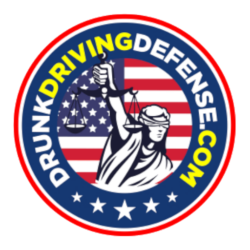A DUI motion for a new trial may be granted if the verdict is contrary to the evidence, or if the principles of justice and equity are decidedly and strongly contrary to the jury’s guilty verdict. Your DUI-DWI defense attorney may also be able to convince the trial court judge that one or more critical rulings made at trial were incorrect, thereby justifying a new trial.
In other words, the trial judge has the discretion to decide that, based on the evidence (or lack of evidence) presented at trial, or based upon the judge’s erroneous rulings during trial, that the jury’s verdict needs to be vacated (removed) so that a new trial can be heard again without such “error” (or errors) being part of the presentation of evidence.
If your drunk driving attorney can point to a clearly erroneous (and reversible) ruling by the trial judge, he or she may prefer to let you have a new trial rather than see the error reported in an appeal that is published for anyone in the world to see.
What is a Motion in Arrest of Judgment?
A motion in arrest of judgment is asking the trial judge to not allow the entry of any judgment of you due to a serious technical problem with the evidence that has been produced, or possibly a problem with a defective accusatory document that the state produced at trial. To sustain a motion in arrest of judgment, it must typically be based upon the court in question lacking jurisdiction, or that the evidence presented at trial is in some respect fatally deficient or defective and (therefore) legally insufficient to support a judgment.
Extraordinary motion for new trial, based on newly discovered evidence
The granting of a new trial based on newly discovered evidence is very rare. Numerous well-established criteria must ALL exist and be shown to have occurred by the party seeking the extraordinary motion before a new trial will be granted. Failure to show even one of these requirements is sufficient to authorize the judge to deny the extraordinary motion for a new trial.
In a nutshell, this “newly discovered” evidence must not only be “new” but also be of such a nature that the new evidence was not known, or could not have been known to the party bringing the motion. The new evidence cannot be merely repetitive or cumulative of what was already presented at the original trial. The new evidence cannot be merely information that will impeach the credibility of a witness who testified at the original trial.
The granting of this extraordinary motion for a new trial is left to the discretion of the trial judge, and no appellate relief will be granted to overturn the trial judge’s ruling except upon an “abuse of discretion.”
More DUI Appeals Resources
If you’d like to learn more about the DUI appeals process, read through some of our informative articles below. We convert the ins and outs of DUI appeals and dive into some complicated questions on the matter. Also, you can call 1-888-839-4384 anytime to schedule a free consultation.

